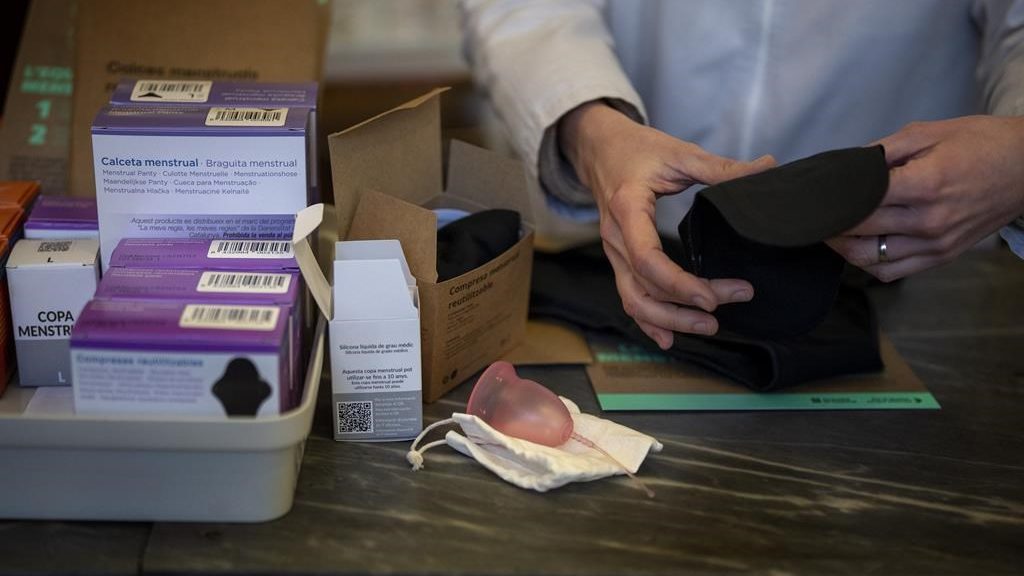Top Stories
Urgent Survey Reveals 50% of Maritime Women Face Health Crises

UPDATE: A groundbreaking survey by the IWK Foundation reveals that over 50% of women in the Maritime provinces report serious health issues disrupting their daily lives. This urgent finding from “The Voice of Maritime Women – The Unspoken Burden of Women’s Health” surveyed more than 27,000 women across Nova Scotia, New Brunswick, and Prince Edward Island, highlighting an alarming healthcare crisis that demands immediate attention.
The report, released just today, indicates that only one-third of respondents feel they are doing “OK,” while a staggering 21% admit to being in crisis. This urgent situation is compounded by existing healthcare challenges in Nova Scotia, including severe staffing shortages and long wait times for treatment. In 2024, nearly 10% of hospital patients left the emergency room without treatment, according to a report from the Montreal Economic Institute.
Independent MLA Elizabeth Smith-McCrossin emphasized the need for systemic change, stating, “The reality is it’s affecting our economy, it’s affecting our society. When women are sick, when women are not able to be fully functioning, it affects all of us.” The report underscores that health issues among women are not just personal; they impact the broader community and economy.
The survey reveals troubling trends, with 86% of women agreeing that significant changes are crucial for improving healthcare. The most pressing health concerns identified include chronic and often invisible issues like stress, anxiety, and hormonal imbalances. Alarmingly, 75% of women admitted to delaying healthcare due to responsibilities or fear of not being heard.
Jennifer Gillivan, President & CEO of the IWK Foundation, stated, “These burdens can no longer remain unspoken. They are loud, clear, and long overdue for action.” She emphasized that women are not merely asking for better healthcare; they are demanding a comprehensive strategy that prioritizes their unique experiences and needs.
In response to these findings, Smith-McCrossin has introduced Bill 166, the Women’s Health Strategy Act, which aims to create a dedicated approach to women’s health issues. The bill had its first reading earlier this month, and Smith-McCrossin hopes it will spark essential discussions about women’s healthcare across the province.
The IWK survey’s results have ignited a call to action, urging both provincial and federal governments to address these critical health disparities. “It’s our tax dollars,” Smith-McCrossin noted, stressing the responsibility of government to prioritize the health of women in the region.
As the conversation surrounding women’s health intensifies, the IWK Foundation’s findings are a wake-up call that cannot be ignored. The urgent need for change is clear, and the voices of Maritime women are demanding that action be taken now.
Stay tuned for further updates as this story develops. The implications of this survey will surely resonate across healthcare discussions in Canada and beyond.
-

 Politics4 weeks ago
Politics4 weeks agoSecwepemc First Nation Seeks Aboriginal Title Over Kamloops Area
-

 World5 months ago
World5 months agoScientists Unearth Ancient Antarctic Ice to Unlock Climate Secrets
-

 Entertainment5 months ago
Entertainment5 months agoTrump and McCormick to Announce $70 Billion Energy Investments
-

 Science5 months ago
Science5 months agoFour Astronauts Return to Earth After International Space Station Mission
-

 Lifestyle5 months ago
Lifestyle5 months agoTransLink Launches Food Truck Program to Boost Revenue in Vancouver
-

 Technology3 months ago
Technology3 months agoApple Notes Enhances Functionality with Markdown Support in macOS 26
-

 Lifestyle3 months ago
Lifestyle3 months agoManitoba’s Burger Champion Shines Again Amid Dining Innovations
-

 Top Stories2 months ago
Top Stories2 months agoUrgent Update: Fatal Crash on Highway 99 Claims Life of Pitt Meadows Man
-

 Politics4 months ago
Politics4 months agoUkrainian Tennis Star Elina Svitolina Faces Death Threats Online
-

 Sports5 months ago
Sports5 months agoSearch Underway for Missing Hunter Amid Hokkaido Bear Emergency
-

 Politics5 months ago
Politics5 months agoCarney Engages First Nations Leaders at Development Law Summit
-

 Technology5 months ago
Technology5 months agoFrosthaven Launches Early Access on July 31, 2025




















